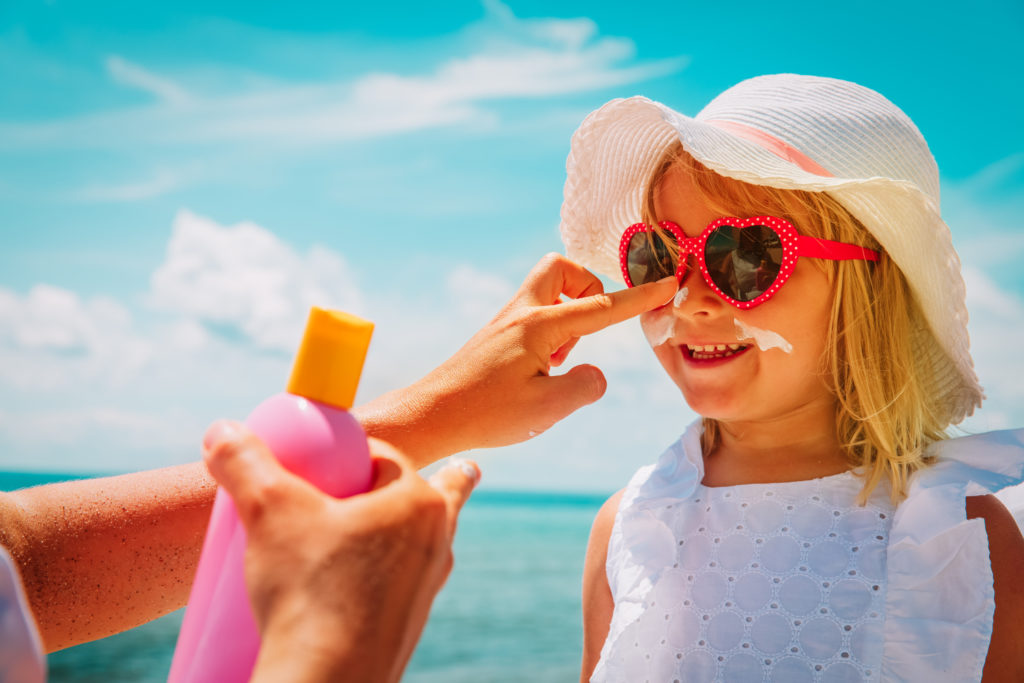Don’t forget sunscreen!

As we all welcome the opening of beaches for walking and water sports, it is time to remember how important it is to protect your kids (and yourself) from damaging UVA and UVB rays.
Here are a few important reminders when choosing and applying sunscreens:
• Apply the sunscreen 15 to 30 minutes before going out in the sun.
• Apply sunscreen frequently: Water resistant sunscreen means the SPF level stays effective for 40 minutes in the water. Very water resistant means it holds after 80 minutes of swimming. These sunscreens are in no way water-proof, so you’ll need to reapply them this frequently.
• Apply plenty of the product to work. About 1 ounce of product per application is needed. Using a smaller amount will make sunscreen far less effective.
• Choose a SPF 15 or higher for UVB protection and ensure the product also protects against UVA rays. If you burn in 10 minutes, SPF 15 multiplies that by a factor of 15, meaning you could go 150 minutes before burning. There is little added benefit above SPF 50.
• Kid-friendly sunscreens use fewer ingredients and are less likely to irritate the skin. Look for mineral ingredients like titanium dioxide and zinc oxide. Unlike non-mineral products, these protect babies’ skin without being absorbed.
• Choose a formulation that your child will tolerate, applying sunscreen needs to be non-negotiable to protect them, so you may have the best luck with sunscreen sticks on the face (tinted zinc sticks are my favorite!) and a lotion on the body. Other options are a powdered form or less preferred (due to kids breathing in aerosols) spray sunscreen. If using spray sunscreen, be sure to be in a well ventilated space.
• Don’t forget the easy-to-miss spots, like the tips of ears, back of neck, tops of feet, lips, and scalps.
• We recommend keeping infants under 6 months of age out of the sun and protecting their tender skin by wearing good sun protective clothing (the average cotton T-shirt only has a SPF of 4), putting a wide brimmed hat on them, and even sunglasses, and keeping them in the shade when possible. Talk to your CPCMG pediatrician if you have questions about protecting your baby’s skin when it cannot be covered.
• No matter how long-lasting it’s supposed to be, reapply sunscreen at least every 2 hours, and more often if you’re sweating or getting wet.
• Pay attention to the expiration date on the bottle. Sunscreen loses its effectiveness over time.
• Wear sunscreen whenever you’re out during the day – and not only when it’s hot and sunny. On a grey, overcast day, up to 80% of the dangerous UV rays still make it through the clouds. And during the winter, exposure to the sun’s rays still can have damaging effects on your skin.

